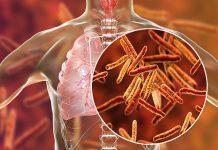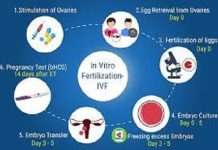By Gracia Obi
This week, two of my neighbours lost their children to measles. It was a very sad moment, not only to the mothers, but also to the neighbours, who saw how the mothers suffered to save their children’s lives.
In developed countries, most children are immunised against measles by the age of 18 months. Unfortunately, in developing countries like Nigeria, children are only treated when they are down with the disease. And this is why the disease is one of the leading causes of child death in the country.
Measles is an infection of the respiratory system caused by a virus. Measles is spread through respiration (contact with fluids from an infected person’s nose and mouth, either directly or through aerosol transmission), and is highly contagious – 90 per cent of people without immunity sharing living space with an infected person will catch it.
There is no specific treatment for measles. Most patients with uncomplicated measles will recover with rest and supportive treatment. It is, however, important to seek medical advice if the patient becomes more unwell, as they may be developing complications. For the vast majority of healthy patients, measles is not serious; though in some cases complications may occur, which may include bronchitis, and rarely – panancephalitis, which may cause brain damage.
Signs and symptoms
While measles is probably best known for its full-body rash, the first symptoms of the infection are usually a hacking cough, runny nose, high fever, and red eyes. A characteristic marker of measles is Koplik’s spots, small red spots with blue-white centres that appear inside the mouth.
The measles rash typically has a red or reddish brown blotchy appearance and first usually shows up on the forehead, then spreads downward over the face, neck and body, then down to the arms and feet.
A person with measles is contagious from 1 to 2 days before symptoms start, until about 4 days after the rash appears.
Prevention
Infants are generally protected from measles for 6 months after birth, due to immunity passed on from their mothers. Older kids are usually immunised against measles according to state and school health regulations.
For most kids, the measles vaccine is part of the measles-mumps-rubella immunisation (MMR) or measles-mumps-rubella-varicella immunisation (MMRV) given at 12 to 15 months of age and again at 4 to 6 years of age.
Measles vaccine is not usually given to infants younger than 12 months old. But if there is a measles outbreak, or a child will be traveling out of the country, the vaccine may be given when a child is 6 – 11 months old, followed by the usual MMR immunisation at 12 – 15 months and 4 – 6 years.
As with all immunisation schedules, there are important exceptions and special circumstances. Your doctor will have the most current information regarding recommendations about the measles immunisation.












